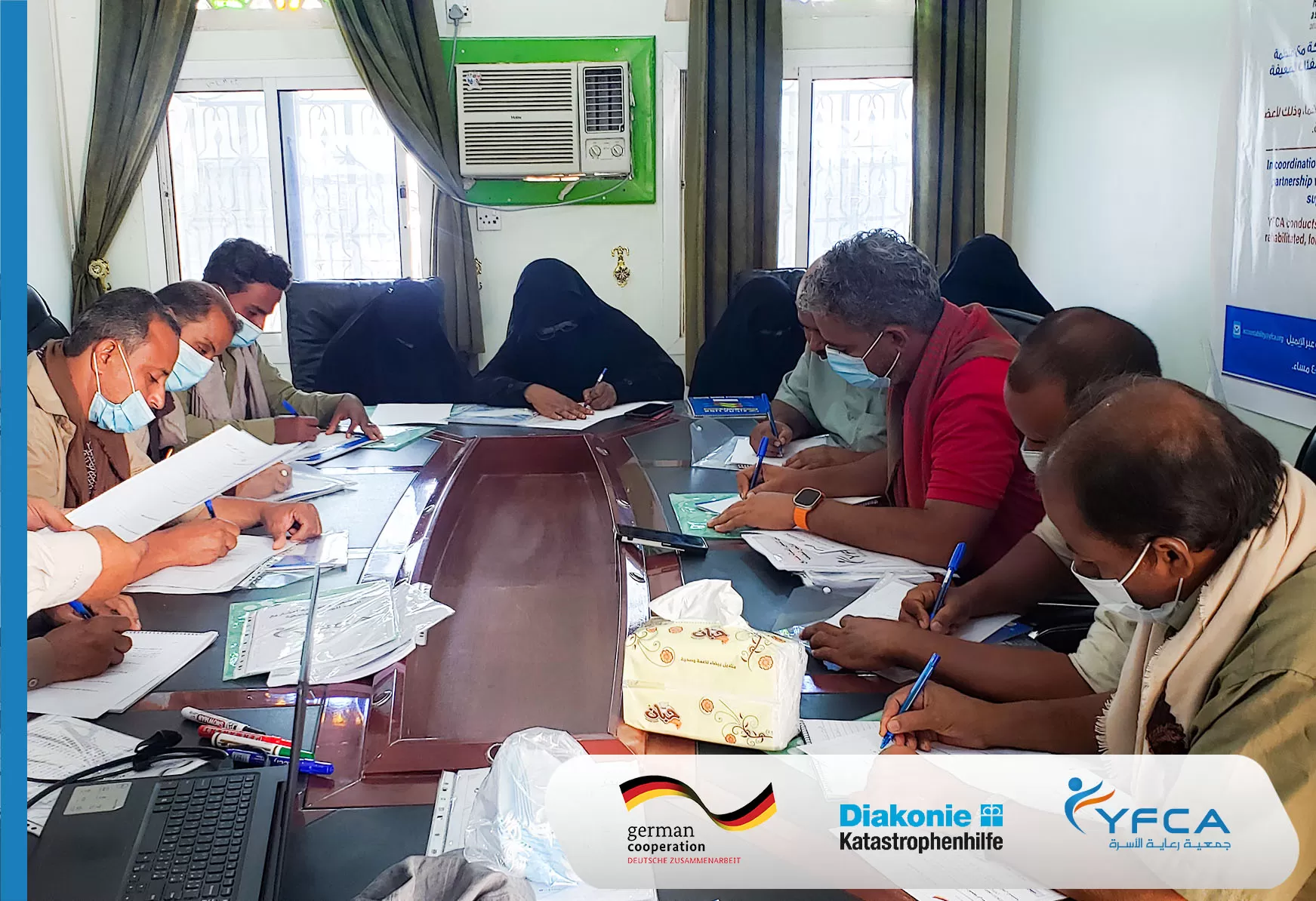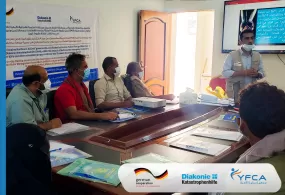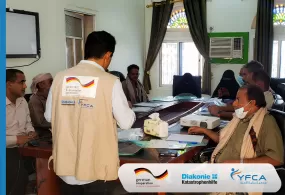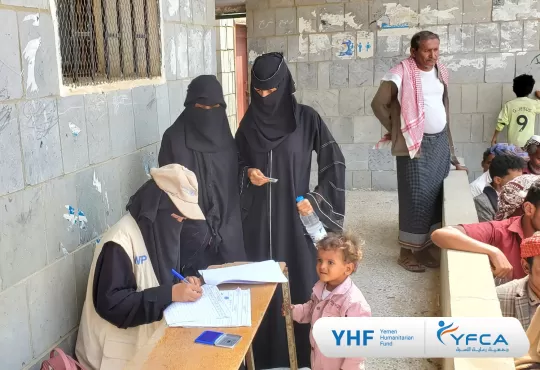Sunday, 22 September, 2024
Mayfa'ah District, Shabwah Governorate — In a recent effort to bolster access to clean drinking water, YFCA held a training course for local community committee members as part of the Multi-sectoral Emergency Response project. Funded by the German Federal Foreign Office (AA) in partnership with Diakonie-Katastrophenhilfe (DKH), the training brought together 12 participants—eight men and four women—responsible for overseeing the Azan and Hudn Ba Daian water community assets.
These community committees play a crucial role in ensuring that local populations have access to safe drinking water, particularly in regions where wells are the main source of water. Their responsibilities include managing and maintaining these vital resources, a task that has become increasingly important amid Yemen's ongoing humanitarian crisis.
The training aimed to equip participants with the necessary skills and knowledge for effective water resource management. Key topics included:
- The importance of wells for human health and well-being
- Different types of wells and their components
- Safe and efficient operation and maintenance of wells
- Techniques for identifying and repairing minor issues
- Developing and implementing maintenance plans
- Strategies for involving the community in well management
By emphasizing community participation, the training highlighted the significance of local involvement in ensuring the sustainability of these water sources. Empowering community committees with the right tools and knowledge is essential for maintaining operational wells that can provide water to all residents, even during crises.
This initiative represents a critical step toward improving water access in Yemen, showcasing the positive impact of community-driven efforts to address urgent needs during challenging times.
These community committees play a crucial role in ensuring that local populations have access to safe drinking water, particularly in regions where wells are the main source of water. Their responsibilities include managing and maintaining these vital resources, a task that has become increasingly important amid Yemen's ongoing humanitarian crisis.
The training aimed to equip participants with the necessary skills and knowledge for effective water resource management. Key topics included:
- The importance of wells for human health and well-being
- Different types of wells and their components
- Safe and efficient operation and maintenance of wells
- Techniques for identifying and repairing minor issues
- Developing and implementing maintenance plans
- Strategies for involving the community in well management
By emphasizing community participation, the training highlighted the significance of local involvement in ensuring the sustainability of these water sources. Empowering community committees with the right tools and knowledge is essential for maintaining operational wells that can provide water to all residents, even during crises.
This initiative represents a critical step toward improving water access in Yemen, showcasing the positive impact of community-driven efforts to address urgent needs during challenging times.





